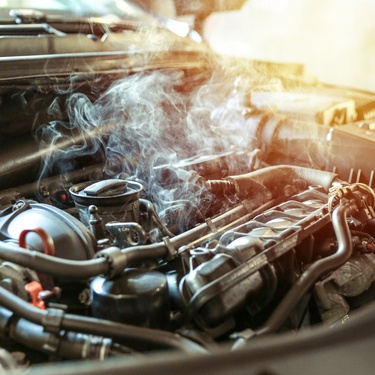
Engine overheating is one of the most common and concerning issues drivers face. It can lead to costly repairs and even complete engine failure if not addressed promptly.
Knowing what causes overheating and how to prevent it is vital to keep your vehicle in good working condition. Read on as we discuss why your engine overheats and what you can do to prevent this issue from being costly or damaging.
Low Coolant Levels Disrupt Your Engine’s Temperature Control
Coolant plays a vital role in maintaining your engine’s temperature. Without sufficient coolant, the system struggles to transfer heat away from the engine, causing it to overheat. This often occurs due to leaks, evaporation, or neglect in refilling the coolant reservoir.
Check your coolant levels regularly and top them off as needed. For a more preventive approach, flush your coolant system every two to three years or as recommended by your vehicle’s manufacturer.
A Damaged Radiator Cap Causes Pressure Loss
The radiator cap might seem like a minor component, but it has a crucial function. It maintains pressure within the coolant system needed to prevent overheating.
If the radiator cap is faulty or cracked, pressure escapes, and the cooling system becomes less effective. Always inspect your radiator cap for signs of wear or damage and replace it if needed. Make this quick check a part of your regular vehicle maintenance routine.
A Broken Water Pump Disrupts Coolant Circulation
The water pump ensures proper circulation of coolant throughout your engine. When the pump fails, coolant flow is hindered, and your engine cannot stay at an optimal temperature.
Warning signs of a failing water pump include coolant leaks near the front of the vehicle, a whining noise, or an overheating engine. Prevent this by replacing the water pump according to your car’s service schedule, which is typically between 60,000 to 90,000 miles.
Clogged Radiators Reduce Cooling Efficiency
Your radiator dissipates heat from the coolant. Over time, dirt, debris, and rust clog the radiator, making it less effective at cooling the engine. Symptoms often include rising temperature gauges and visible overheating during idle or driving on hot days.
Regularly cleaning your radiator and ensuring adequate airflow can prevent this issue. Use high-quality coolant, which often contains additives that prevent rust and blockages.
Head Gasket Leaks Introduce Overheating Risks
A leaking head gasket allows coolant to mix with your engine’s oil, which interferes with its cooling ability. This causes overheating and can lead to catastrophic engine damage if ignored. You may notice white smoke from the exhaust, milky oil, or even coolant loss.
Head gasket issues require immediate professional attention. Ensure proper coolant levels and avoid driving your vehicle in extreme heat conditions, especially if it’s exhibiting early signs of trouble, to minimize risk.
Effective Cooling Solutions Prevent Temperature Spikes
Automatic transmission coolers provide an additional way to prevent overheating, especially in vehicles used for towing or heavy-duty performance. These coolers maintain ideal operating temperatures for the transmission, which reduces the strain on the overall cooling system.
If your engine overheats, don’t ignore it. Take action immediately and learn how to prevent this issue from happening in the future.
Bio: Casey is a passionate copyeditor highly motivated to provide compelling SEO content in the digital marketing space. Her expertise includes a vast range of industries from highly technical, consumer, and lifestyle-based, with an emphasis on attention to detail and readability.

























